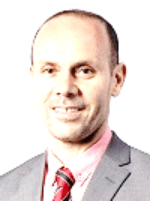Keynote & Invited Speakers
PEEE Keynote Speakers

Prof. Saad Mekhilef, IEEE Fellow
Swinburne University of Technology, Australia & University of Malaya, Malaysia
Biography: Prof. Dr. Saad Mekhilef is an IEEE and IET Fellow. He is a Distinguished Professor at the School of Science, Computing and Engineering Technologies, Swinburne University of Technology, Melbourne, Australia, an Honorary Professor at the Department of Electrical Engineering, University of Malaya, and a distinguished visiting professor at the Institute of Sustainable Energy, Universiti Tenaga Nasional, Malaysia. He authored and co-authored more than 600 publications in academic journals and proceedings, five books with more than 47,000 citations, and more than 85 Ph.D. students who graduated under his supervision. He serves as an editorial board member for many top journals, such as IEEE Transactions on Power Electronics, IEEE Open Journal of Industrial Electronics, IET Renewable Power Generation, E-Prime, Journal of Power Electronics, and International Journal of Circuit Theory and Applications. His research interests include Power Conversion Techniques, Control of Power Converters, Maximum Power Point Tracking (MPPT), Renewable Energy, and Energy Efficiency.
Title of Speech: Energy Storage Solutions for Renewable Energy Integration: Technologies and Grid Applications
Abstract: Energy storage plays a crucial role in modern electrical grids by enhancing reliability, improving efficiency, and facilitating the integration of renewable energy sources. Various energy storage technologies, including electrical, mechanical, electrochemical, thermal, and chemical systems, have been developed to address grid stability and fluctuations in energy demand. Advances in these technologies, coupled with declining costs, are making renewable energy sources, such as wind and solar, combined with storage, increasingly competitive with traditional fossil fuel-based power generation. This trend is expected to accelerate as both renewables and storage systems become more affordable and efficient. In this lecture, we will explore the fundamentals of power conversion and energy storage, examine key energy storage devices, and discuss their applications in modern grid systems.

Prof. Danny Sutanto
University of Wollongong, Australia
Biography: Danny Sutanto received his B.Eng. and Ph.D. from the University of Western Australia in 1978 and 1981 respectively. Following his graduation he joined GEC Projects, Australia as a Power System Analyst. In 1982 he joined the School of Electrical Engineering at the University of New South Wales. In 1996 he joined the Hong Kong Polytechnic University as a Professor in Electrical Engineering. In 2006, he joined the School of Electrical, Computer and Telecommunications Engineering at the University of Wollongong as the Professor of Power Engineering. His main areas of research are power system analysis, power system economics, voltage stability, harmonics, power electronics and computer aided education. He has published numerous papers in the areas of electromagnetic transient analysis, power system analysis, voltage instability, design of harmonic filters, FACTS, Battery Energy Storage Systems, computer aided teaching systems, power system expansion planning, electrical machines and power electronics, in total over 170 papers. He was awarded the N. Svennson's Award for Teaching Excellence in the Faculty of Engineering in 1994. In 2000, he was awarded the HK Polytechnic University President's Award for Outstanding Performance in Teaching. He has extensive consultancy experience both in Australia and Hong Kong covering areas such as power system planning, fault analysis and harmonic filter design. While at the Hong Kong Polytechnic University, he received grants from the RGC, Learning and Teaching Development Committee (LTDC), British Council, various research studentship and grants from the Hong Kong Polytechnic University totalling more than HK$15 million. He was appointed as the Regional Representative of the Power Engineering Society of the Institute of Electrical and Electronics Engineers Electronic) for Region 10, Asia -Pacific from 2001-2004. He has been invited to be the members of International Advisory Board for several international conferences. He is also a member of the International Editorial Advisory panel of the International Journal "Electric Power Systems Research".
Title of Speech: Reimagining the Future Power Distribution Grid
Abstract: The global power grid stands at the threshold of a bold transformation. As the energy landscape shifts, tomorrow’s grid must adapt to integrate a dynamic array of technologies—from renewable energy sources like wind and solar, to emission-free transport, high-efficiency storage, and power-electronic-driven infrastructure. This keynote envisions the future distribution grid as a flexible, intelligent, and resilient system—built not merely on legacy principles, but reengineered for a decentralized and digitally connected era.
At the core of this transformation are high-frequency magnetic links and next-generation power converters, underpinned by solid-state transformers (SSTs) that transcend the limitations of traditional systems. With the ability to control voltage, frequency, and power flow in real time, SSTs offer the ability needed to accommodate intermittent renewables, facilitate local energy storage, and enable active monitoring at the grid edge.
As emerging technologies converge with evolving energy demands, our existing planning and analysis frameworks must be reimagined. The challenge ahead is not only technical—it is conceptual. How do we architect a grid capable of operating in domains vastly different from those of the past century, yet still delivering reliable, affordable, and sustainable power for all?
This talk invites industry leaders, researchers, and policymakers to reimagine electricity distribution through a new lens—one in which intelligence, flexibility, and accessibility form the backbone of tomorrow’s power grid.